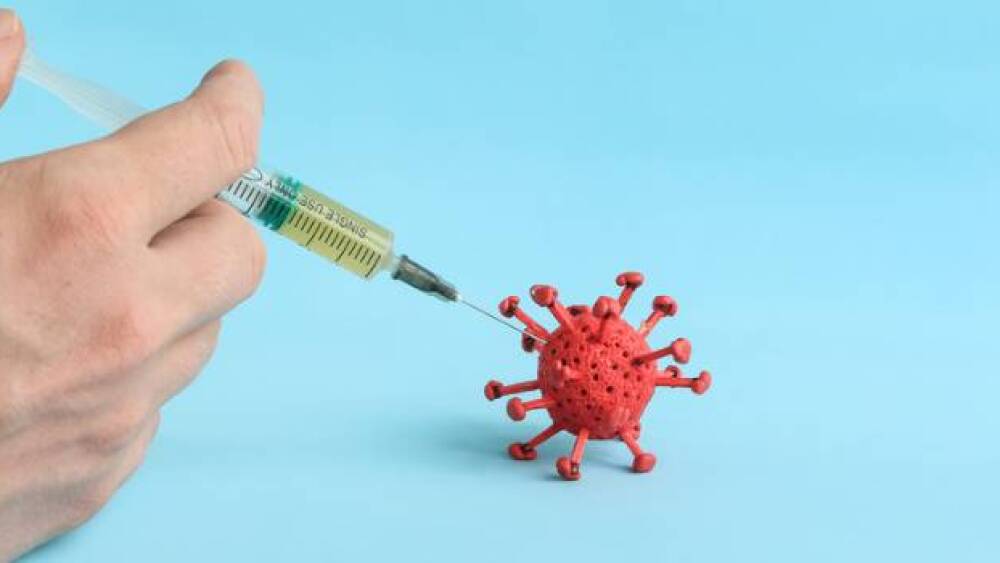Moderna invested heavily in mRNA technology to manufacture some 900 million doses of the COVID-19 vaccine. Now, the company has created an mRNA-based vaccine to prevent HIV.
Pharmaceutical giant Moderna announced that it has launched a clinical trial for a human immunodeficiency virus (HIV) vaccine. The first participants in Phase I of the trial—56 healthy, HIV-negative people—were given their first dose of the vaccine Thursday at George Washington University (GWU) School of Medicine and Health Sciences in Washington, D.C. The mRNA vaccine was created using the same technology Moderna used to create its COVID-19 vaccine.
The road to an HIV vaccine has been long. Currently, about 38 million people worldwide are living with HIV—with a few treatment options, but no cure. Clinical trials have been researching possible cures since 1987. A study of a vaccine in the 2000s run in Thailand reportedly decreased infections by about 30%, but the results are controversial.
If there were to be a silver lining to the coronavirus pandemic, this might be it. Moderna invested heavily in mRNA technology to manufacture some 900 million doses of the COVID-19 vaccine. Now, using the same technology, the company has created an mRNA-based vaccine to prevent HIV.
“Given the speed with which mRNA vaccines can be produced, this platform offers a more nimble and responsive approach to vaccine design and testing, potentially shaving off years from typical vaccine development timelines,” Moderna’s statement said.
This is the first time that an HIV vaccine has been made with mRNA technology. BioSpace previously reported on Moderna’s clinical trial plans in August 2021. A first trial last year tested the immunogen but without employing mRNA technology. It showed that the desired immune response was triggered in dozens of people taking part in the research. Based on those promising results, the mRNA vaccine will use those same immunogens to trigger immune responses in patients in hopes that the B lymphocyte cells of the immune system will generate antibodies against HIV.
The immunogens used in this trial were developed by IAVI, a nonprofit scientific research foundation dedicated to learning more about HIV and AIDS, and the Scripps Research Institute, with support from the Bill & Melinda Gates Foundation and the U.S. National Institute of Allergy and Infectious Diseases. The immunogens will be delivered with Moderna’s mRNA technology.
“The search for an HIV vaccine has been long and challenging, and having new tools in terms of immunogens and platforms could be the key to making rapid progress toward an urgently needed, effective HIV vaccine,” said Mark Feinberg, M.D., Ph.D., president and CEO of IAVI.
Now that the study has begun, the next step is a booster shot. Forty-eight of the participants will receive one or two doses of the mRNA vaccine, and 8 participants will receive a boost of the immunogen alone. Patients will be monitored for safety for six months after their last vaccination.
Elsewhere in the HIV treatment space, Philadelphia-based Excision BioTherapeutics also announced that they have initiated Phase I of a two-phase clinical trial. Their treatment uses CRISPR-based technology called EBT-101 to remove sections of the HIV genome from the human body.
Excision was also inspired by the pandemic. While most of the world has been worried about the coronavirus pandemic—rightly so—Dr. Lisa Danzig, M.D., chief medical officer of Excision, acknowledged that the world has also been suffering from an HIV pandemic with much less medical success. “Forty years into this pandemic there is still no curative regimen [for HIV],” Danzig said. Between Excision’s and Moderna’s clinical trials, the quieter pandemic of HIV will hopefully be nearing an end.





